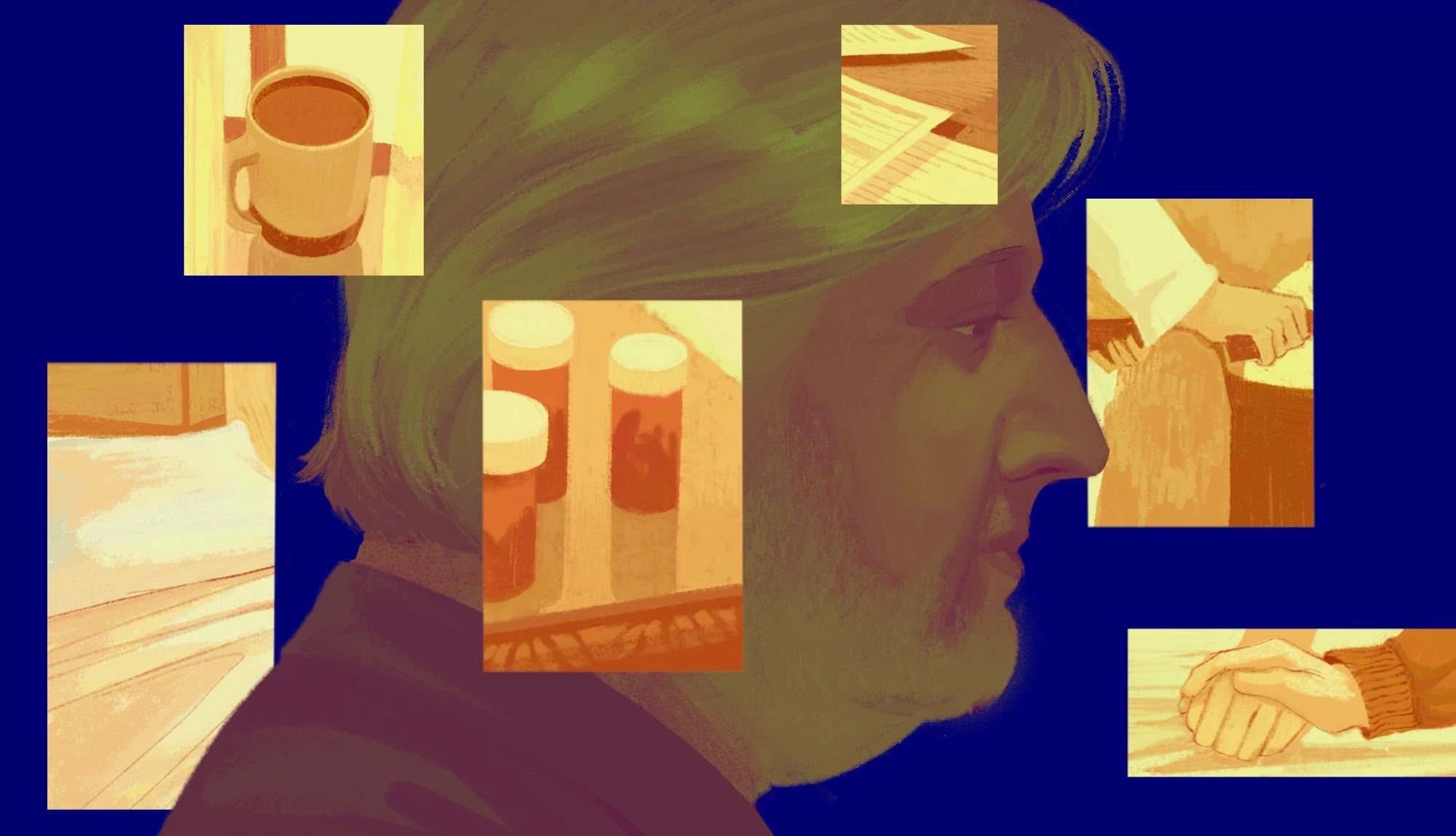AARP Hearing Center


I write short sentences.
Not because I’m a minimalist. It’s because I don’t have the margin for long ones.
Most days, my attention is split into fragments. I’ve been a caregiver for more than four decades. My wife’s medical journey includes 98 surgeries — and life under that kind of pressure reshapes how you experience time.
It comes in waves.
Some days, the load feels lighter. But never light.
Most days, I spin and turn so often, I can practically hear Ross Geller from Friends yelling frantically: “Pivot! Pivot! Pivot!”
When you live like that, even thinking about a five-year plan, a five-week plan — heck, even a five-day plan — feels like trying to paint a mural on a merry-go-round.
Join Our Fight for Caregivers
Here’s what you can do to support family caregivers:
- Sign up to become part of AARP’s online advocacy network and urge lawmakers to pass legislation to save caregivers time and money.
- Find out more about how we’re fighting for you every day in Congress and across the country.
- AARP is your fierce defender on the issues that matter to people age 50-plus. Become a member or renew your membership today.
I recently did an interview with an AARP writer while folding towels, cleaning the kitchen and emptying the dishwasher.
I tried to be quiet — you’ll have to ask him if I was — but honestly, that’s just my life.
“Blessed are the flexible,” I remind myself, “for they shall not be bent out of shape.”
Caregiving compresses your world. The micro — the appointments, the medication refills, the crisis du moment — demands all your attention.
And when the micro dominates, the macro disappears.
You forget who you are, what you care about and where this road is even supposed to lead.
It’s not just exhausting. It’s blinding.
Caregiving can shrink your world to a to-do list that never ends and a “to-be” list that seems a distant memory.
I’ve actually had to say to my wife while finishing a thought for an article or book, “Honey, I’ll be with you in just a moment, but I need my whole brain right now.”
She understands. It’s the life we’ve built together in an impossible situation.
Others looking in from the outside often chime in — usually with good intentions.
“Have you tried a spa day?”
Sure. Should I take this perennial stack of medical bills with me?
“Wouldn’t you love to go on a cruise?”
You mean willingly trap myself on a floating buffet with 2,000 needy, demanding strangers expecting room service and constant attention?

































































More From AARP
Enjoy These Perfect Puree Recipes
They are easy, creamy and seriously delicious
Managing Anger as a Family Caregiver
How to acknowledge and deal with challenging emotions5 Surprising Truths About Grief
New research reveals that common conceptions about dealing with loss are all wrong.